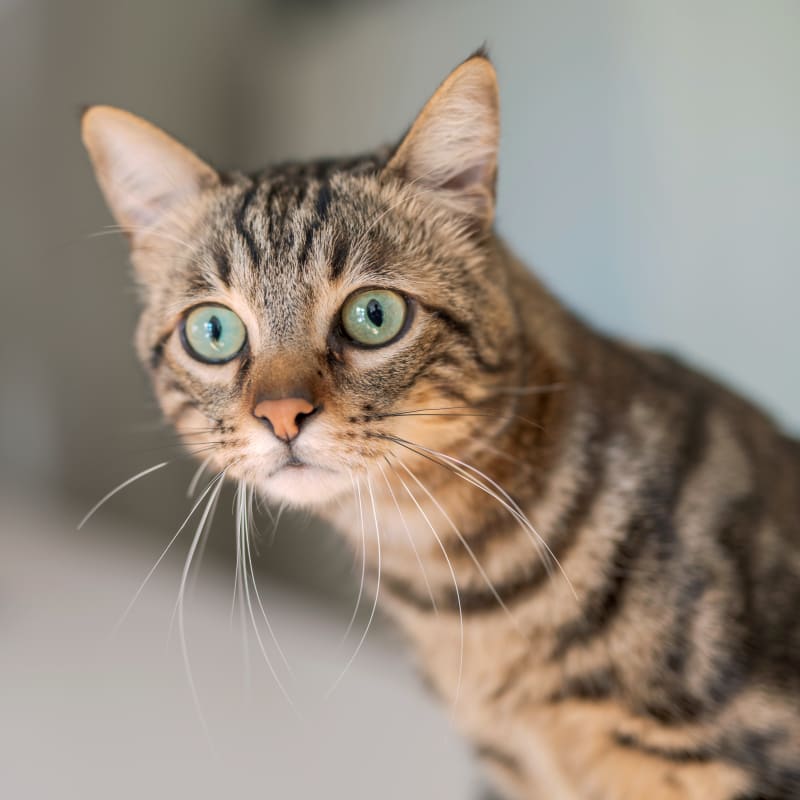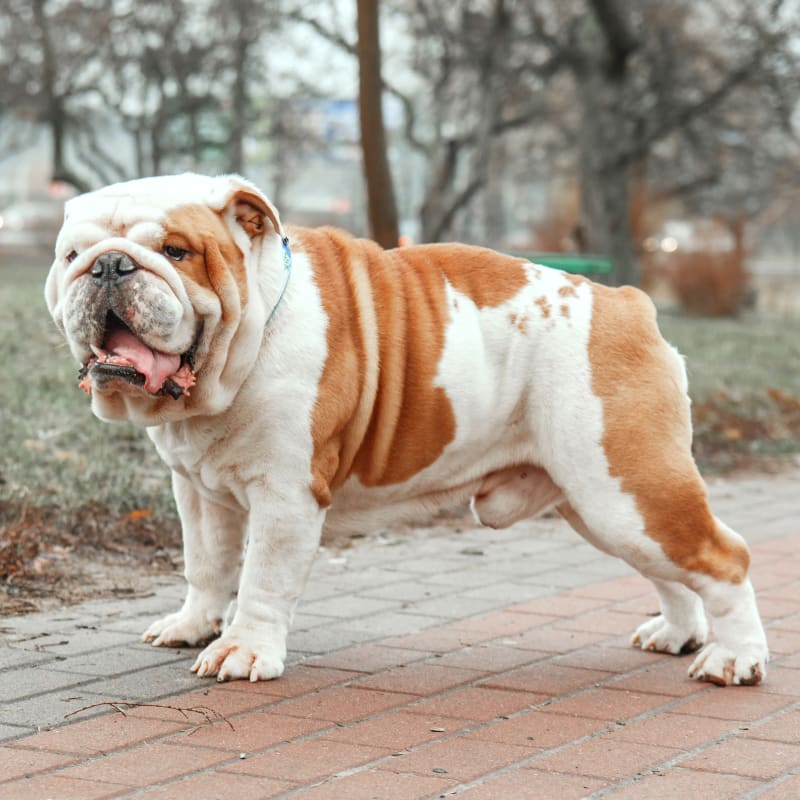What are ocular procedures for cats and dogs?
We perform a wide range of ocular procedures for dogs and cats at North Boulder Companion Animal Hospital, including entropion surgery, cherry eye surgery, and eyelid tumor removal.
We are fully equipped for complete ophthalmic examinations, diagnostics and advanced ophthalmic surgical procedures.

Symptoms of Eye Problems in Cats & Dogs
We can diagnose and treat the following symptoms:
- Corneal Cloudiness
- Dilated Pupils
- Obviously Enlarged Eye
- Pain
- Redness
- Increased Tear Production
- Visible Third Eyelid
Common Eye Problems in Pets
Some of the most common eye problems we treat include:
- Infections
- Vision Loss
- Cataracts
- Scratches
- Abrasions
- Drainage
- Corneal Ulcers

Ophthalmology FAQs
Below are answers to some of the most common questions that our North Boulder veterinary team receives from our clients about ophthalmology and ocular surgery.
- What are some common eye problems for senior pets?
Cataracts
Part of all of the eye lenses of a senior pet may develop a cloudy or opaque cataract. Cataracts block light from reaching the back of your pet's eye, resulting in poor vision or blindness depending on the severity of the issue.
Glaucoma
Glaucoma describes an imbalance and increase of pressure in fluids in your pet's eye. Normally, the production and drainage of fluid in the eye is balanced, but it can become unbalanced by any number of different causes.
Symptoms of glaucoma include pain, increased tear production, redness, corneal cloudiness, a visible third eyelid, and/or dilated pupils. In advanced cases, eyes can become enlarged.
- What should I do if my dog/cat has something in their eye?
Begin by attempting to remove the foreign object from your pet's eye with a saline solution. This can be easier said than done, however, if your pet is experiencing eye pain.
Do not attempt to remove the object with your fingers or tweezers, as this can damage the eye.
If you aren't able to flush the object out on your own, call your veterinarian as soon as possible so your pet doesn't experience any complications.
- Why should I consider cataract surgery for my dog or cat?
Not every dog or cat that has cataracts needs surgery. In fact, most often they do not. This is because lens opacities in dog and cat eyes tend to be very small and so they don't interfere with their vision.
Only a veterinary ophthalmologist can determine if cataract surgery is required for a given patient. It is usually only done when the cataract is severely hindering the animal's ability to see.
Cataract surgery isn't a life-saving one, it is for your pet's quality of life. Restoring a blind pet's sight with cataract surgery can give them a new lease on life.
For a blind dog or cat to again be able to see its owner, play with toys, look out the window and actually see things is life-changing for the patient and their owner. This is especially true if the animal is elderly and also deaf or hard of hearing, and/or has dementia or cognitive issues.
- What is cherry eye, and how is it treated?
Dogs have three eyelids. Two are visible and one is usually hidden from view. This third eyelid, in the inner corner of their eye, contains a tear-producing gland which, can depending on the breed of your dog, swell and move from its usual place.
When the ligaments holding this gland in place fail, the gland pops out of its normal location, and it looks like there is a “cherry” stuck at the inner corner of the eye.
To treat cherry eye, a veterinarian will perform a simple surgery to attach the gland back in a more normal position.
- My dog has Entropion (eyelids that roll inwards). What are the treatment options available to me?
When your dog's eyelids roll inwards, their hair rubs on their eyeball and causes irritation and pain each time they blink. It will eventually damage the cornea if left untreated.
If entropion has developed because of a condition that will eventually resolve, your vet can temporarily suture the eyelids into a more normal position. In other cases, surgery may be necessary to permanently repair abnormal eyelid anatomy.
